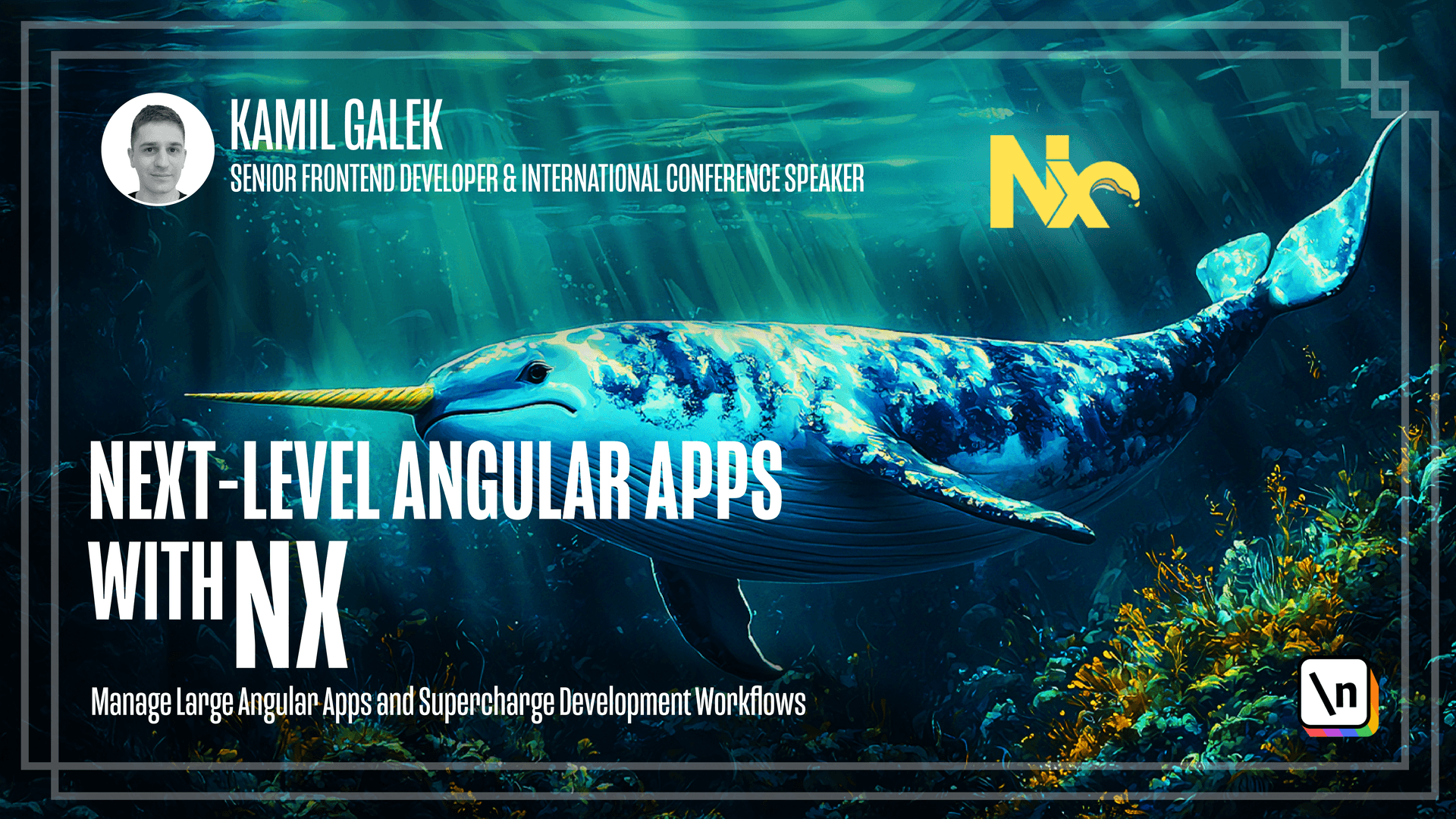Speaker introduction and course overview
Introduction to the Building Angular applications with NX
This lesson preview is part of the Next-Level Angular Apps with NX course and can be unlocked immediately with a \newline Pro subscription or a single-time purchase. Already have access to this course? Log in here.
Get unlimited access to Next-Level Angular Apps with NX, plus 90+ \newline books, guides and courses with the \newline Pro subscription.

[00:00 - 00:10] Hello everyone, welcome to the course building Angular applications with NX. From the course, you will learn from scratch how to build and maintain Angular applications using Monorepo approach.
[00:11 - 00:37] We will focus on migrating existing code bases to NX Monorepos, using pre-configured tools like As, Lind, Jest, or Cypress, and of course, on building new applications using NX Monorepos. This course might interest you because as you probably know, front-end applications become more and more complex every year, we add features, we add new ideas to our applications, and it's a lot of code.
[00:38 - 00:48] NX makes it easier to have that big complex applications. You should know that we are going to use Angular, so some skills are required to get most out of the course.
[00:49 - 01:00] But if you have ever written at least a few small applications in Angular, that's fine, that's enough, you're okay, you can start with NX. This course has eight modules.
[01:01 - 01:15] Every module will have multiple lessons, full list of lessons, more details, and everything you need to know you will find in the description to this lesson . I really believe when you learn something new in technology, you have to try it yourself.
[01:16 - 01:26] After some lessons, I will leave you with an idea how to add new features to the apps we wrote during the lesson. And you may treat it as a homework.
[01:27 - 01:34] This method has always worked for me and I can really recommend it to everyone. To complete this course, you will need Angular installed.
[01:35 - 01:50] I'm going to use Angular 16 because it's full of modern features that I like. I will use Yarn and Node.js, and I suggest you using LTS versions, long-term support of Node.js and Yarn, if possible.
[01:51 - 01:59] But any version that works with Angular is fine. My name is Camille and I have been a Angular developer for the last few years, I worked with it daily.
[02:00 - 02:17] And sometime ago I noticed that my knowledge is based mostly on the things that I heard or that I know because I use it. So I decided to relearn Angular from the scratch using Angular source code and it helped me a lot to understand that framework.
[02:18 - 02:36] I'm working with quite a big Angular application that demands from me a deep knowledge of Angular and that relearning process was really, really helpful. I'm the author of MetikaAngia.dev, you will find my articles on my blog and on Medium.
[02:37 - 02:49] And if you're interested in using Angular without ng-zones or just pushing Angular to its limits, I have few articles that may sound cool for you. Since 2019, I'm a conference speaker.
[02:50 - 03:05] You can find some of my talks on YouTube and I decided to share my knowledge with developers like you because I think that it's one of the most important soft skills you can have as a developer. And that's all for the first lesson. I hope you'll enjoy the course.